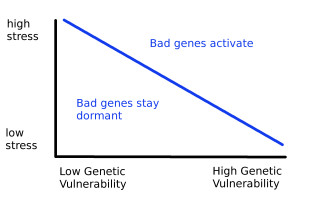Xpress sat down with Barb and Scoop Skupien in Barb’s downtown boutique, Embellish Asheville, to explore how the stress of running a business might be affecting them. Ironically, the interview itself seemed an additional stress on their day, yet they gracefully handled the conversation while managing employees and assisting customers, all without breaking a sweat or losing focus. As it turns out, the couple have discovered how to utilize their stress for success, harnessing it to lift themselves up, not wear themselves down. You may be surprised to hear what science, clinicians, and Barb and Scoop have discovered about stress and ways it can be converted into a powerful tool.
STRESS EVERYWHERE
Amanda Graves, an Asheville social worker with over 22 years of experience, points out that not all stress is the same. “There is a purpose to stress. Stress is a signal that something needs our attention. It motivates us to make positive change. Ignoring stress can begin a spiral of harmful effects and consequences, such as illness or anxiety.” That’s the dichotomy of stress: It can be helpful or unhelpful, energize you or drain you, lift you up or throw you down.
“There is a purpose to our body’s stress reaction,” explains Kyler Robbins, a licensed professional counselor and clinical addiction specialist in private practice in Waynesville. He also works with Meridian Behavioral Health Services, a nonprofit mental health agency serving seven Western North Carolina counties.
Evidently, our brains are programmed to think about bad things that could happen or are happening and then produce an intense reaction in our bodies, Graves explains. “In most cases, our brain’s survival-based system is just not needed in the way it used to be. But it still reacts at the slightest provocation. You won’t ever be able to completely shut down your stress system, as it is a vital part of each of us.”

USING STRESS
Stress can be used for empowerment. Graves and Robbins note that the consensus among clinicians is that a stress reaction has important benefits. “Stress is intimately connected with learning and the drive to overcome,” Robbins says. “Your mind uses stress to learn, to be alert and more attentive to your environment, which helps you to improve your performance and steer clear of danger.”
Barb Skupien describes her journey of learning from stress: “This isn’t my first store. I first brought my vision to light in Chicago. I’ve had to learn the hard way to get to the place I am at now. All my past stressful experiences ended up teaching me how to improve. I’ve learned what matters and what to really pay attention to.”
Clinical studies show that we generate new neural pathways as a result of stressful experiences. Our stress systems have evolved as the motivating factors in the drive to thrive, overcome, grow and achieve. In this way, stress is natural and helpful. Scoop Skupien, who works as the editor of The OnBase Blog and helps out at the store when he can, says, “There’s always a bit of stress involved when you’re pushing yourself to get better.” From this perspective, stress is just another word for progress.
DESTRUCTIVE STRESS
Unfortunately, stress does not always empower us, and its destructive side can be catastrophic. Evidence shows that experiencing chronic, untreated, ongoing stress can take a major toll on health and wellness. According to the American Psychological Association, 75 percent of the ailments people seek medical help for are stress-related. Untreated stress is linked to six leading causes of death: heart disease, cancer, lung ailments, accidents, cirrhosis of the liver and suicide. Stress is also connected to hypertension, emotional overeating, obesity, depression, infertility and a compromised immune system. As Robbins summarizes it: “Untreated stress causes physical problems, relationship problems and emotional problems. It shows up everywhere.” Put simply, unhelpful stress has the power to negatively impact every aspect of life, including longevity.
“When the stress is chronic and intense, it can generate symptoms of posttraumatic stress disorder,” Graves explains, “which speaks to how powerful and painful stress can be.” Even if not traumatizing, persistent stressors can bring on latent mental and physical challenges.

“Chronic stress increases your vulnerability to any latent, genetically predisposed wellness challenges,” Robbins says. “Addiction, depression, anxiety, cancer, heart disease and other physical illness may be triggered in response to stress.” Ultimately, chronic stress can be life-threatening.
WARNING SIGNS
Being aware of the warning signs can help us better manage stress. For example, “I can be a little short when I’m stressed out,” says Barb.
Graves shares a long list of common warning signs of too much stress: “You may experience physical signs, such as persistent muscle tension or pain, headaches, upset stomach, sleep problems, or a change in your sex drive. You may feel more irritable, quick-tempered, overly sensitive or depressed. Or you might lose motivation, feel restless, anxious or too tired to enjoy life. You may find yourself using more alcohol, tobacco, other drugs, overeating or undereating, or avoiding social situations.” These could all be signs of suffering from unhelpful stress.
TACKLING STRESS
Graves explains that “our first line of defense against the negative effects of stress is our resilience; the second is all the ways we’ve learned to cope successfully.” While looking for solutions, you may have already found many of the ancient stress-reduction techniques that have been supported by the current explosion of research into stress. There have also been other surprising new ways of managing stress that were birthed from research in recent decades.

As examples, Graves lists techniques that have been shown to be effective in clinical trials: “Mindfulness-based practices, biofeedback, transcendental meditation, relaxation response, emotional freedom technique, progressive muscle relaxation, tai chi, yoga, exercise, equine therapy, healthy eating, autogenic training [accepting relaxation commands from yourself], diaphragmatic breathing and cognitive behavioral therapy. This is exciting, because there is so much free support available: online resources, support groups, courses. Many counselors are teaching their clients how to use these strategies to destress their lives. Asheville is the perfect place to find these approaches to improving mental and physical health.”
ACCEPTING STRESS
Robbins notes that one of the most empirically supported techniques for stress is Acceptance and Commitment Therapy. “It is about developing a willingness to approach your stress, which ultimately allows you to let it go,” he says. “Fighting your stress becomes stressful in itself.” ACT techniques include becoming mindful of what stress does to your body, then recognizing that its purpose is to draw your attention to what matters. Perhaps tell yourself that you are aware and your body no longer needs to be on high alert.”
Robbins shared some of the creative strategies that ACT offers: “Out of context, some of the techniques might seem silly. Like thanking your brain for helping you to pay attention to the things in your life that are causing problems or that really matter to you. Or singing your stressful thoughts to the rhythm of the happy birthday song. Ultimately, they are designed to help you experience the stress without it being unbearable.”
BEING RESILIENT

“Childhood stress or a lack of nurturance can lessen your resilience,” Graves notes. “Whatever your level of resilience, be patient with your stress. You have a flexible brain that is ‘neuroplastic,’ or extremely changeable. You can overcome stress, though it takes time to develop the new neural pathways that support a stronger, more resilient and flexible nervous system. Remind yourself that you can learn new ways to think and feel about things, and this learning can lead to resolving the stressor. Talk it over with friends, notice your dreams, or seek someone in the helping profession who can help you identify causes and uncover ways to overcome those stressors and increase your resilience. You can increase both your resilience and your ability to cope.”
Robbins reminds those he helps to take a break: “Give yourself a respite from your stress. This break keeps the stress from being chronic.”
Graves also emphasizes the importance of exercise and diet. “We all know the value of healthy eating and exercise. These are our No. 1 defenses against negative effects of stress. Exercise gives us a serotonin boost, which helps our bodies to cope better with stress. It gives us a brief break from the negative effects of stress.” Graves adds that a healthy diet is harder to maintain while being stressed, which often triggers cravings for nutritionally deficient foods that are high in sugar or fat. “Unhealthy eating while stressed only compounds your stress further,” she says.
BEING SUPPORTED
Both Graves and Robbins say that improving relationships is a direct strategy for reducing stress.
“You don’t want to forget the most powerful place for healing — your deep and meaningful relationships,” Robbins says. “Talk about your stress with your close friends, lean on your family and discuss it with your partner if you have one. Good relationships help you recover more quickly from stress.” Robbins warns that you want to talk sooner rather than later. “Seek out your deep relationships as soon as possible, before your stress causes you to retract from those relationships. It can isolate you if you allow it to fester.”
Scoop confides, “We’ve been married for 19 years, so we know each other well and are able to give insightful advice. I’m Barb’s biggest fan, so when she feels like she’s had a bad day, it’s my job to restore her confidence. She does the same for me.” Both of them describe ways they process their stress with each other in order to manage it. Barb advises, “Communicate often and honestly. Living together is just simpler when you’re honest. That kind of relationship is a great place to talk about your stress. When something at work is stressing you out, you need to bring it up.”
If you have children, supporting yourself helps support them, says Robbins. “Our children learn more from what we do than from what we say. Modeling for them how to handle your own stress will help them to manage their own. They can learn from your successes.”
WHEN TO SEEK PROFESSIONAL HELP
Graves explains that if people have taken steps to control stress but continue to suffer some of its symptoms, they may want to discuss it with a close friend, primary care doctor or other trusted professional who can help identify the source of the stress; it’s also important to learn skills and tools to enhance coping and rebuild resilience. Both Graves and Robbins suggest that whatever people’s situation is, they shouldn’t allow stress to fester and accumulate. Rather, they can find the kind of help and support they need to cope effectively and rebuild the ability to enjoy life.




Stress can cause one to stand still instead of going ahead and moving ahead. I have found that staying still in a comfort zone is only comfortable at first. Going ahead and doing the action I am nervous about is something Ive just started to do in my life. Ive accomplished some good things finally in my life. Im not staying on the sidelines minding my stress waiting for it to get better BEFORE I do the things I want to do. Im very anxious today due to a certain course I have, now in my last semester. Im also anxious and stressed because I entered an art show at a local gallery and got in. I dont think what I submitted is good enough. I also dont know if I can survive my last semester, but Im moving forward and doing it anyway. Stress will just have to accept that it wont keep me still and scared anymore.